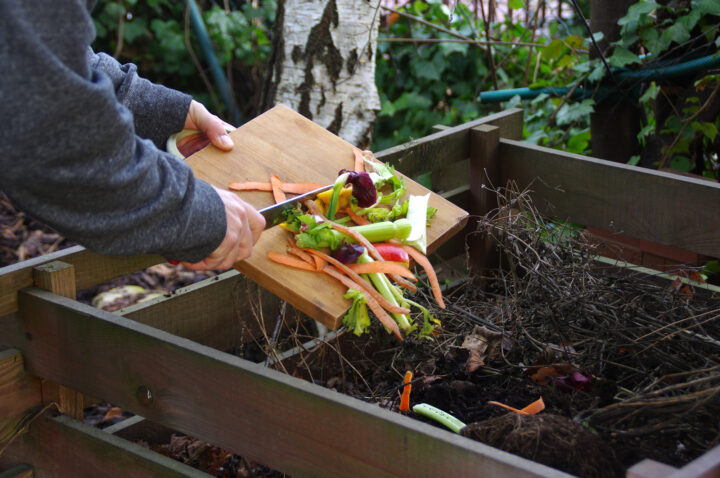The following contribution is from another author.
Household waste has become a pressing concern in the modern world. Excessive consumption and disposal of goods harms the environment and strains resources.
Therefore, it’s high time people adopt a more sustainable lifestyle to reduce our ecological footprint. This article will discuss practical tips for minimizing household waste, saving money, and contributing to a healthier planet.
Embrace The 3 R’s: Reduce, Reuse, Recycle
Nowadays, skip bin companies, such as Tiny Tins Waste Management specialize in helping individuals and households adhere to these principles. And in the quest for a more sustainable and eco-friendlier lifestyle, the following processes have never been more relevant.
- Reduce: Start by cutting down on your overall consumption. Before making a purchase, ask yourself if you genuinely need it. This simple practice can significantly reduce the waste you generate.
- Reuse: Give a second life to items whenever possible. Reusable shopping bags, containers, and water bottles can replace their disposable counterparts. Repair broken items rather than replacing them.
- Recycle: Familiarize yourself with your local recycling program and sort your recyclables correctly. Recycling conserves resources and reduces the burden on landfills.
These three simple principles are crucial to minimizing our environmental impact, conserving resources, and reducing household waste.
Composting: Turning Kitchen Scraps Into Nutrient-Rich Soil
Composting is an excellent way to divert organic waste from landfills while creating a valuable resource for your garden. Start a compost pile in your backyard or use a compost bin if space is limited.
You can compost food scraps, yard waste, and paper products like coffee filters and egg cartons. The resulting compost is a nutrient-rich soil conditioner that enhances soil fertility and reduces the need for chemical fertilizers.
Opt For Bulk Buying And Reusable Packaging
When it comes to minimizing household waste, your shopping decisions wield significant influence. Seek out products with minimal packaging or opt for bulk purchases to diminish the use of single-use packaging.
Numerous stores presently provide alternatives to acquire items in reusable containers, thereby lessening the reliance on disposable packaging. By embracing this approach, you not only decrease waste but also generate long-term savings.
Say No To Single-Use Plastics
Single-use plastics, such as plastic bags, utensils, and straws contribute to household waste. One of the most effective ways to reduce this type of waste is to replace single-use plastic items with eco-friendly alternatives.
Bamboo utensils, reusable cloth bags, and stainless-steel straws are readily available and easily incorporated into your daily life. These simple swaps can significantly reduce plastic waste and improve the environment.
Mindful Meal Planning And Storage
Another area where you can make a significant impact is in the kitchen. Mindful meal planning and storage practices can help minimize food waste. Start planning your meals carefully to avoid overbuying or letting perishable items go to waste. Make a shopping list and stick to it, reducing impulse buys that often end up in the trash.
When storing food, use airtight containers and rotate items in your pantry and refrigerator to prevent spoilage. Additionally, consider using the freezer to extend the shelf life of perishable items.
Repair Rather Than Replace
In our disposable culture, discarding items at the first sign of malfunction is common. However, embracing a repair-first mentality can significantly reduce waste. Consider learning basic repair skills or seeking professional help to fix appliances, clothing, and electronics.
Many items can be repaired inexpensively, so you extend their useful life, reduce waste, and save money on replacements. Repairing instead of replacing is a sustainable practice that promotes resource conservation.
Donate Or Sell Unwanted Items
Instead of tossing items you no longer need, consider donating them to charities or selling them online. Your trash might be someone else’s treasure. This practice reduces waste, helps those in need, and promotes a circular economy where goods are reused and recycled to their fullest potential. Before discarding items, assess whether they can find a second life through donation or resale.
Sustainable Cleaning Practices
Swap conventional cleaning products for eco-friendly alternatives. Look for products with biodegradable packaging and natural ingredients. You can even make cleaning solutions using vinegar and baking soda.
Eco-friendly cleaning practices reduce the environmental impact of cleaning while keeping your home clean and safe for your family. This simple change can contribute to a healthier living space and a cleaner planet.
Opt For Digital Over Paper
Opt for digital subscriptions, bills, and communication whenever possible in this digital age. Reducing paper consumption saves trees and reduces clutter in your home.
Request electronic statements from banks and utilities, unsubscribe from physical junk mail, and choose e-books and digital magazines over printed copies. The transition to a paperless lifestyle is environmentally responsible but also convenient and space-saving.
Responsible Disposal
When it’s time to dispose of hazardous waste like electronics or chemicals, follow local guidelines and regulations. Many communities have special disposal programs for these items to prevent environmental contamination.
Improperly disposing of hazardous materials can harm the environment and pose risks to human health. Be sure to research and follow the correct disposal methods for these items and consider alternatives to hazardous products whenever possible.
Conclusion
Implementing these practical tips can significantly reduce household waste and contribute to a more sustainable lifestyle. Remember, every small effort counts in the battle against waste. Make these changes, and you’ll find that reducing household waste becomes a rewarding and fulfilling part of your sustainable journey.
















